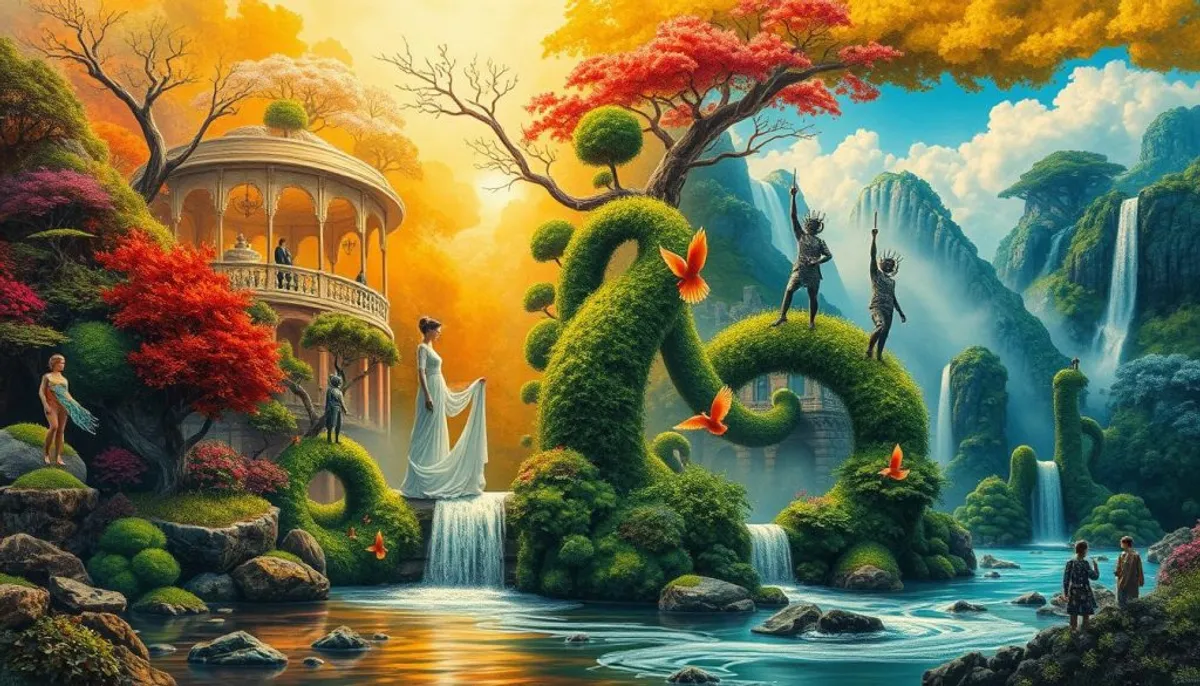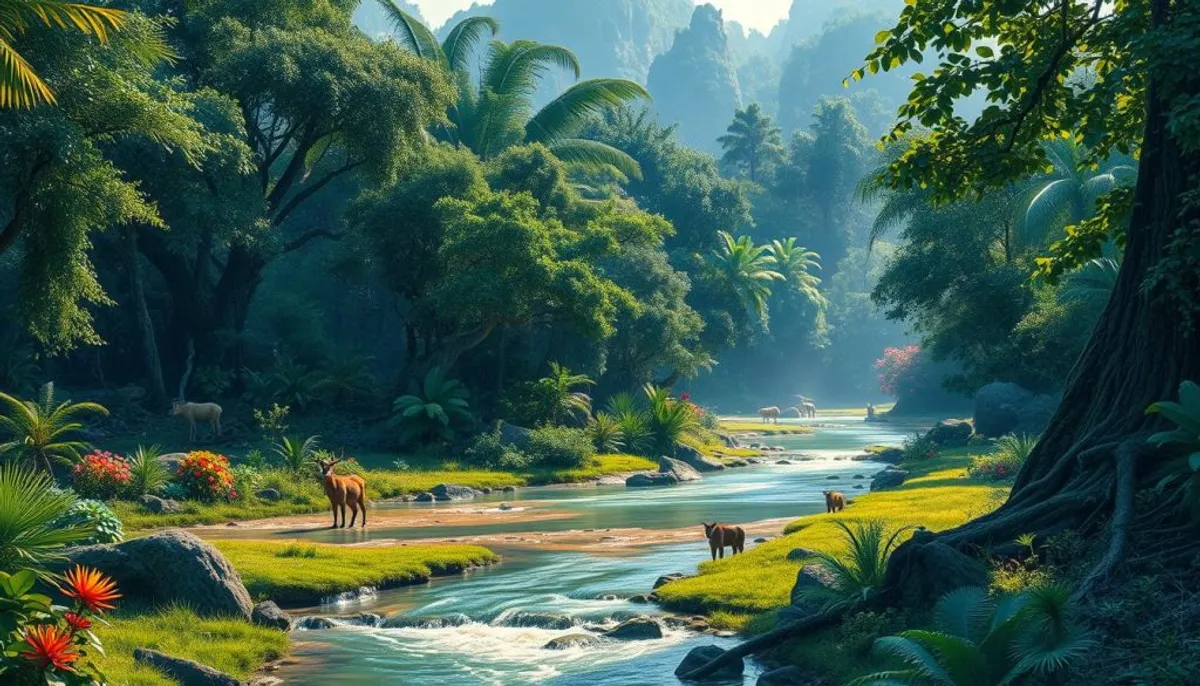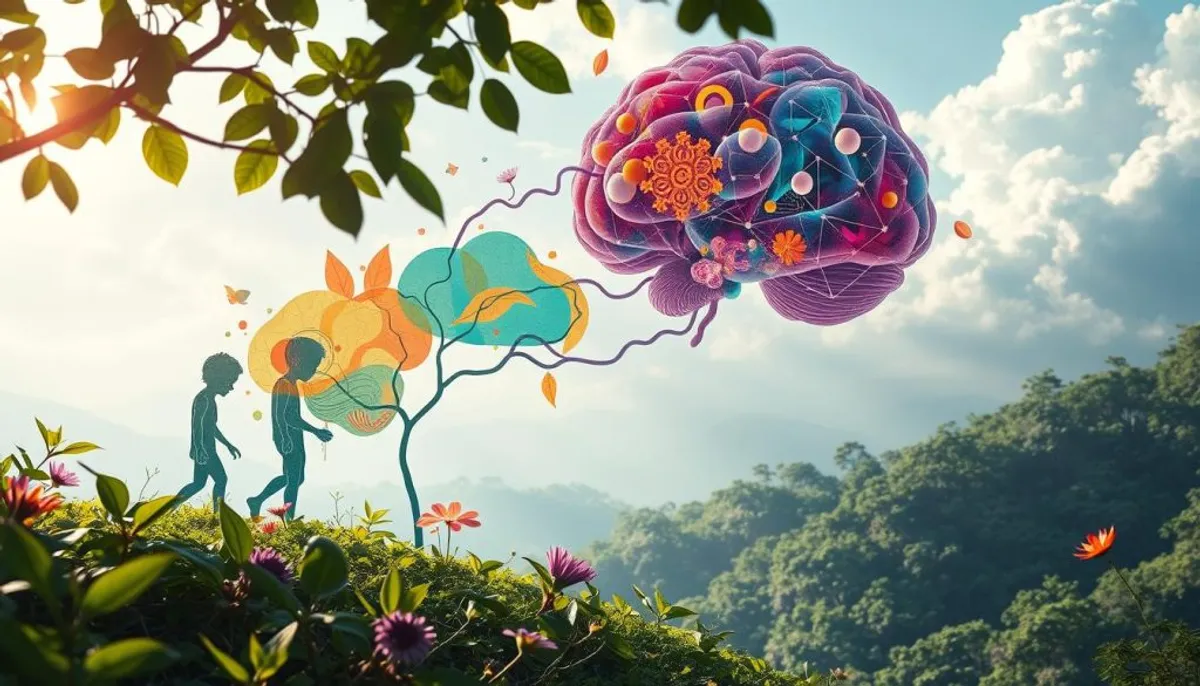The question of human nature and its relationship to culture sparks a profound philosophical debate. Thinkers like Rousseau and Diderot explored the state of nature of man. On the other hand, Nietzsche and Sartre examined how civilization shapes our essence.
The dichotomy between nature and culture prompts us to consider whether education and society radically alter our being. This inquiry forces us to reflect on our primitive state and the consequences of life in society.

Aristotle believed that culture allows the actualization of our capabilities. Sartre, on the other hand, argued that our humanity is entirely shaped by culture. These contradictory ideas encourage us to reconsider our understanding of humanity.
In addressing this topic, we will examine the impact of civilization, the state of nature, and the changes induced by education. This reflection will enable us to better understand the complexity of our nature and its interaction with the surrounding culture.
How does culture distort man?
The opposition between nature and culture raises essential questions about human essence. Culture, considered a process of civilization, profoundly transforms man. It distances him from his initial primitive state.
The traditional opposition between nature and culture
This dichotomy highlights the tension between our biological heritage and our social acquisitions. The state of nature, often idealized, contrasts with the complexity of civilization. Education plays a crucial role in this transformation, shaping our behaviors and values.
The transformation of man by civilization
Civilization has ambivalent effects on human beings. On one hand, it fosters intellectual and technological development. On the other, it can lead to conflicts and inequalities. The world wars of the 20th century tragically illustrate this denaturation of man by civilized society.
The effects of education on human nature
Education, a pillar of culture, profoundly shapes our nature. It distances us from our primary instincts, but it also allows us to develop unique faculties. This process raises the question: is there a human nature that precedes culture?
| Aspect | Primitive state | Civilized state |
|---|---|---|
| Physical health | More robust | Less vigorous |
| Social relations | Equal | Hierarchical |
| Conflicts | Rare | Frequent |
The state of nature and the primitive condition of man
The philosophy of Rousseau emphasizes the importance of the state of nature and the primitive condition of man. He questions the existence of an original state of humanity, before culture and civilization. This reflection is central to his thought.
Rousseau sees in the natural man two fundamental characteristics. He possesses an instinct for preservation and a repugnance to see his peers suffer. This natural pity prevents man from becoming a monster and pushes him to protect his kind.

In this primitive state, Rousseau imagines a man living in harmony with his environment. He does not need elaborate clothing or material possessions. Nudity is natural, with rudimentary garments serving only to protect against the elements.
Contrary to the idea of a brutal state of nature, Rousseau describes it as peaceful. The natural man would only harm others in self-defense. This vision contrasts with that of the civilized man, described as manipulative and domineering.
| Natural man | Civilized man |
|---|---|
| Instinct for preservation | Desire for domination |
| Natural pity | Manipulation of nature |
| Simplicity of needs | Pursuit of social status |
| Harmony with the environment | Exploitation of resources |
The transition from the state of nature to civilized society marks, according to Rousseau, the beginning of a decline. The emergence of property and social inequalities corrupts man, diverting him from his original goodness. This reflection on the primitive condition raises questions about human nature and the impact of culture on our essence.
The corruption of man by civilized society
Civilized society, according to Rousseau, corrupts man by diverting him from his original simplicity. This transformation generates profound consequences for human nature.
The emergence of social inequalities
Rousseau identifies four types of social inequalities: wealth, nobility, power, and personal merit. Wealth becomes the main form of inequality. These disparities, of human origin, oppose the natural equality where each individual possesses the same dignity.
The development of vices and moral corruption
Civil society fosters the emergence of vices. Property, arising from human labor, increases inequalities. A minority accumulates superfluities while a majority lacks the essentials. This situation leads to widespread moral corruption.
The loss of original simplicity
Rousseau laments the loss of man's original simplicity. Civilization, while bringing progress, distances human beings from their natural state. This transformation raises questions about the real benefits of culture.
| Aspect | Natural state | Civilized society |
|---|---|---|
| Equality | Natural | Social inequalities |
| Moral | Simplicity | Moral corruption |
| Needs | Essential | Superfluities |
The role of property in human denaturation
Private property has a profound influence on the transformation of man and society. It has changed relationships between individuals, causing significant changes in human nature.
The emergence of territorial conflicts
Private property has introduced territorial conflicts. The need to defend one's land has led to intergroup violence. This violence has shattered the previous peace. Paleontologists have confirmed Rousseau's intuition about the explosion of violence related to agriculture and sedentarization.
The birth of rivalries and jealousies
Property has also engendered rivalries and jealousies. These feelings, previously nonexistent, have introduced social inequalities. They have fueled violence in societies, profoundly altering human relationships. To better navigate these issues, it is essential to understand the legal system.
| Aspect | Before private property | After private property |
|---|---|---|
| Social relations | Equal | Unequal |
| Conflicts | Rare | Frequent |
| Resources | Shared | Individualized |
Private property has profoundly changed human nature. It has introduced territorial conflicts and rivalries that were previously nonexistent. This transformation marked a turning point in the evolution of society, distancing man from his original natural state.
Culture as the fulfillment of human nature
Culture is essential to the development of our human nature. It shapes our identity, distinguishing us from other species. To better understand this dynamic, it is crucial to assess the culture of a company. It represents a true fulfillment of our essence, far from denaturing us.
The cultural development is deeply linked to our evolution. It allows us to acquire knowledge, techniques, and values passed down from generation to generation. This transmission encompasses various fields, such as religions, art, and sciences.
Culture shapes our human nature by endowing us with moral qualities. Education, varying according to cultures, teaches us to reason and behave in society. It mitigates our share of “gratuitous wickedness” and guides us toward collective flourishing.
| Aspect | Role of culture |
|---|---|
| Identity | Distinguishes man from animals |
| Moral | Develops moral qualities |
| Knowledge | Transmits knowledge between generations |
| Sociability | Enables life in society |
Thus, culture is not a hindrance to our nature, but its fulfillment. It allows us to transcend our primitive condition to reach our full potential as human beings.
Man as a naturally cultural being
Human beings are distinguished by their ability to develop their intellectual faculties through culture. This unique characteristic shapes our identity and our place in the world.
The development of intellectual faculties
The intellectual faculties of man flourish within society. Education plays a crucial role in this process, as illustrated by the case of Victor of Aveyron. This wild child, found in 1799, demonstrated the profound impact of learning on human development.

The importance of language and symbols
Language and symbols are at the heart of our cultural nature. They allow us to communicate, express complex ideas, and create meaning. This unique capacity distinguishes us from other species and shapes our perception of the world.
The transmission of knowledge between generations
The transmission of knowledge is essential to our cultural evolution. It allows for the preservation and enrichment of knowledge over time. This accumulation of knowledge contributes to our collective and individual progress.
The ethnologist Lévi-Strauss highlights the universality of certain cultural rules, such as the prohibition of incest. These shared norms testify to our deeply cultural nature and our ability to create complex social structures.
Perfectibility as the essence of humanity
Perfectibility, a fundamental concept in Rousseau's philosophy, reveals the deep essence of humanity. This idea, mentioned four times in the Discourse on Inequality, emphasizes man's capacity to transform and improve himself. This process of evolution is unmatched in the animal kingdom.
The capacity for learning and adaptation
Man is distinguished from animals by his capacity for learning and adaptation. While animals act according to their instincts, man enjoys the freedom of choice and autonomy. This freedom allows him to improve individually and collectively, thus fostering constant evolution.
| Characteristic | Man | Animal |
|---|---|---|
| Behavior | Choice and autonomy | Natural instincts |
| Evolution | Perfectible | Immutable |
| Intelligence | Common with the animal | Common with man |
The historical evolution of man
The historical evolution of man illustrates his perfectibility. Over the centuries, humanity has shown its ability to progress, innovate, and adapt to new environments. This capacity for evolution distinguishes man from animals, which remain relatively unchanged over the ages.
Human perfectibility manifests in our ability to learn from our experiences, to transmit knowledge between generations, and to develop increasingly advanced technologies. This constant adaptation shapes our history and defines our identity as a species.
Conclusion
Human nature and culture maintain a complex and profound relationship. Culture, far from altering man, is crucial to his development. It stimulates intellectual and social capacities, thus shaping a complete being.
The case of Victor of Aveyron highlights the importance of education and culture. Without them, man remains limited to his biological condition. Culture, by influencing our behaviors and interactions, allows us to express ourselves fully.
However, culture has its nuances. It reflects cultural differences and can lead to inequalities. Nevertheless, it remains essential to our capacity to think and choose. Ultimately, culture enriches our humanity in all its facets.
RelatedRelated articles


